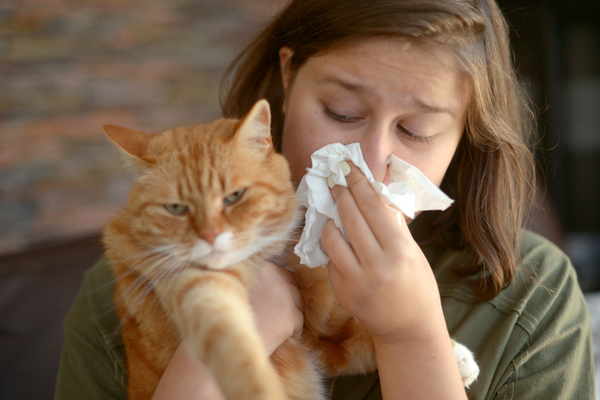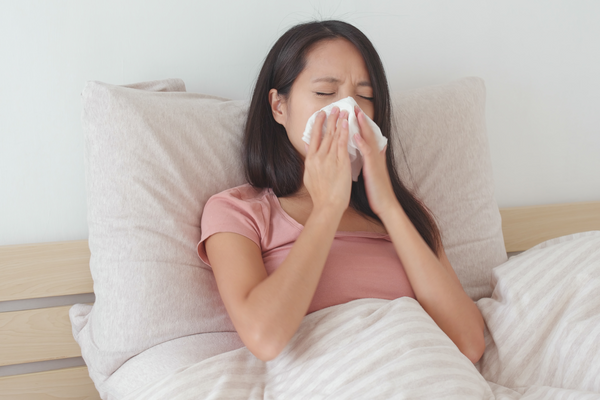How Often Should You Really Wash Your Sheets?

After a long day, the promise of freshly washed sheets is enough to entice almost anyone into bed. But if we’re going to be honest with ourselves, most of us probably aren’t the strictest when washing the bedding. Because, let’s face it, sheet changing is perhaps one of the most annoying chores on the docket. The biggest complaint we all have in common? To wash the sheets, you must unmake and remake the bed (and wrestle with those dreaded fitted sheets). Nobody wants to do that more than they have to. So with that mindset, it’s easy to let your bedsheets slide for another day, which turns into another week. So, how often should you really launder your linens? And what happens when you don’t? We have the details for you here.
One 2014 study found that roughly 35% of adults regularly go two weeks without washing their sheets, with 10% reporting that they used the same sheets for an entire month before changing them.
Another recent study interviewed 18-25-year-old single men in the U.K., 55% of whom admitted to changing their sheets on average every 3.1 months. Unsurprisingly, the results of this bedtime hygiene study went viral, spiking a debate across the Internet on how often sheets should be changed.
Most of us spend 49 to 60+ hours sleeping in our beds each and every week. Getting enough sleep is essential for our well-being, but all that time spent in bed quickly leads to a buildup of dead skin, dirt, sweat, oil, allergens, and all the other fun stuff on our sheets and bedding. Dirty sheets can contribute to allergies, asthma, skin breakouts, skin irritation, infections, and more. For your health and sleep quality, it’s essential to keep things fresh and clean – but how often should you really wash your sheets?
How Often Should You Really Wash Your Sheets?
Most people should wash their sheets once per week. According to Dr. Philip Tierno, Jr., the director of clinical microbiology and immunology at New York University’s Langone Medical Center, sheets and pillowcases should be washed once a week to eliminate the debris accumulated after seven days of use. This debris (mainly from shed skin cells) becomes food for dust mites, which can quickly accumulate in bedding. These microscopic pests are the most common trigger of year-round allergies and asthma.
Related: What is a Dust Mite Allergy?
Aside from dust mites (and their feces), there’s the pet hair, pet dander, fungal mold, fungal spores, bodily secretions (sweat, oil, and fecal matter, to name a few), bacteria, insect parts, dust, pollen, dirt, cosmetics, food, and other debris that builds up in bedding.
The American Academy of Dermatology (AAD) also recommends washing your sheets once a week, but the organization suggests changing your pillowcases two to three times a week, too.
Some people should wash their sheets more often than once per week, generally every 3-4 days.
You Might Want to Wash Your Sheets More Often If You….
- Have allergies or asthma
- Are sensitive to dust
- Let your pet sleep in your bed
- Have sensitive skin
- Eat in bed
- Sleep naked
- Live in a humid climate
- Don’t shower before bed
- Sweat heavily
- Have an infection or wound that touches your bedding
- Don’t wash your pajamas after every wear
Fresh Sheets = Better Sleep
That cozy feeling we get from slipping into freshly washed bed sheets isn’t only in our minds. Research has shown an actual link between clean, crisp bedding and how we sleep. A study by the National Sleep Foundation found that 73% of people feel that fresh sheets are an essential factor in getting restful sleep, and 78% of people feel more excited about bedtime.
What’s the Best Way to Wash Your Sheets?
Before tossing your sheets into the washer, it’s essential to know what they’re made of. Take a look at the care label to identify the fabric content. Most sheets are made out of materials like cotton, microfiber, linen, and silk, and material combinations like cotton-bamboo and cotton-polyester.
Always pre-treat stains (Vital Oxide has you covered––it’s a powerful stain remover) and wash sheets separately from towels or clothing. This prevents damage caused by zippers, buttons, and other fasteners and gives the sheets more room to circulate in the water, which means they’ll get cleaner. If you have a washing machine with a center agitator, loosely form each sheet into a ball before dropping them into the washer to help prevent them from coming into contact with the agitator. Also, don’t forget to wash white sheets separate from dark or very brightly-colored sheets.
Wash the sheets on a “normal” cycle (also called “regular” or “permanent press”) using cold water and our Anti-Allergen Laundry Detergent. Our hypoallergenic, 100% biodegradable detergent is extra gentle for you, your laundry, and our magnificent planet––but its cleaning action is tough on allergens, stains, and grease. Combine the Anti-Allergen Laundry Detergent with our Anti-Allergen Spray to better control indoor allergens.
To reduce wrinkles, take your sheets out of the washer as soon as the cycle is over. When possible, consider hanging your sheets outside on a line to dry. Otherwise, put the sheets in the dryer and dry on a low-heat setting to minimize damage from high temperatures. To help prevent the sheets from wrinkling, remove them from the dryer as soon as the cycle is complete and immediately make your bed, or fold the sheets and store them.
Cold Water Washing
Most people have been taught to use hot or warm water for items like sheets and towels. However, thanks to advances in washing machine technology and detergent formulas, hot water is no longer needed for most loads. The Ecology Works Anti-Allergen Laundry Detergent works well in cold water.
P.S. Don’t Forget to Wash Your Pajamas!
It's not just laundering the sheets you need to keep up with. In 2013, research by UK-based mattress company Ergoflex determined that going one week without washing your pajamas could make you susceptible to developing MRSA, cystitis, and a host of other skin infections.
Most experts agree that pajamas are best washed daily, some even suggesting that pajamas should be treated like a garment worn on a hot day or workout clothes where you sweat more heavily. This is because sweat, dead skin cells, bacteria, natural body oils, and body care products (like lotion) can all quickly build up in pajamas. Rewearing pajamas can cause skin issues or irritation for some people. That said, many people can wear their pajamas for two to three days before needing to wash them.
Wash your PJs with our hypoallergenic detergent for clean, gloriously cozy-feeling sleep attire.
Have questions about cleaning or reducing common household allergens? We have answers! The Ecology Works has been helping people with allergies and asthma since 1993. We can help you select the products you need to live a better, allergen-free life. Check out our Instagram for more cleaning and allergen-reducing tips. Please feel free to Contact Us or message us on Facebook. No question is too small! We’re here to help.



